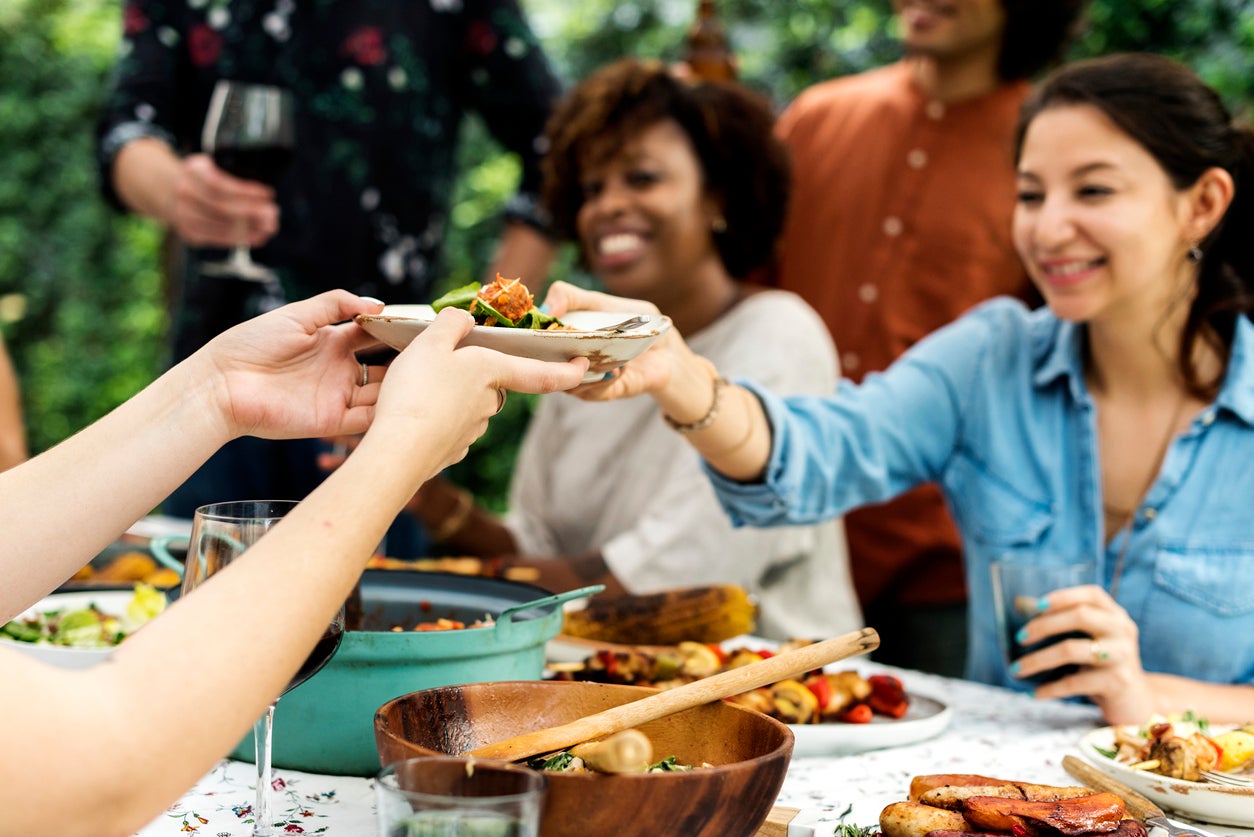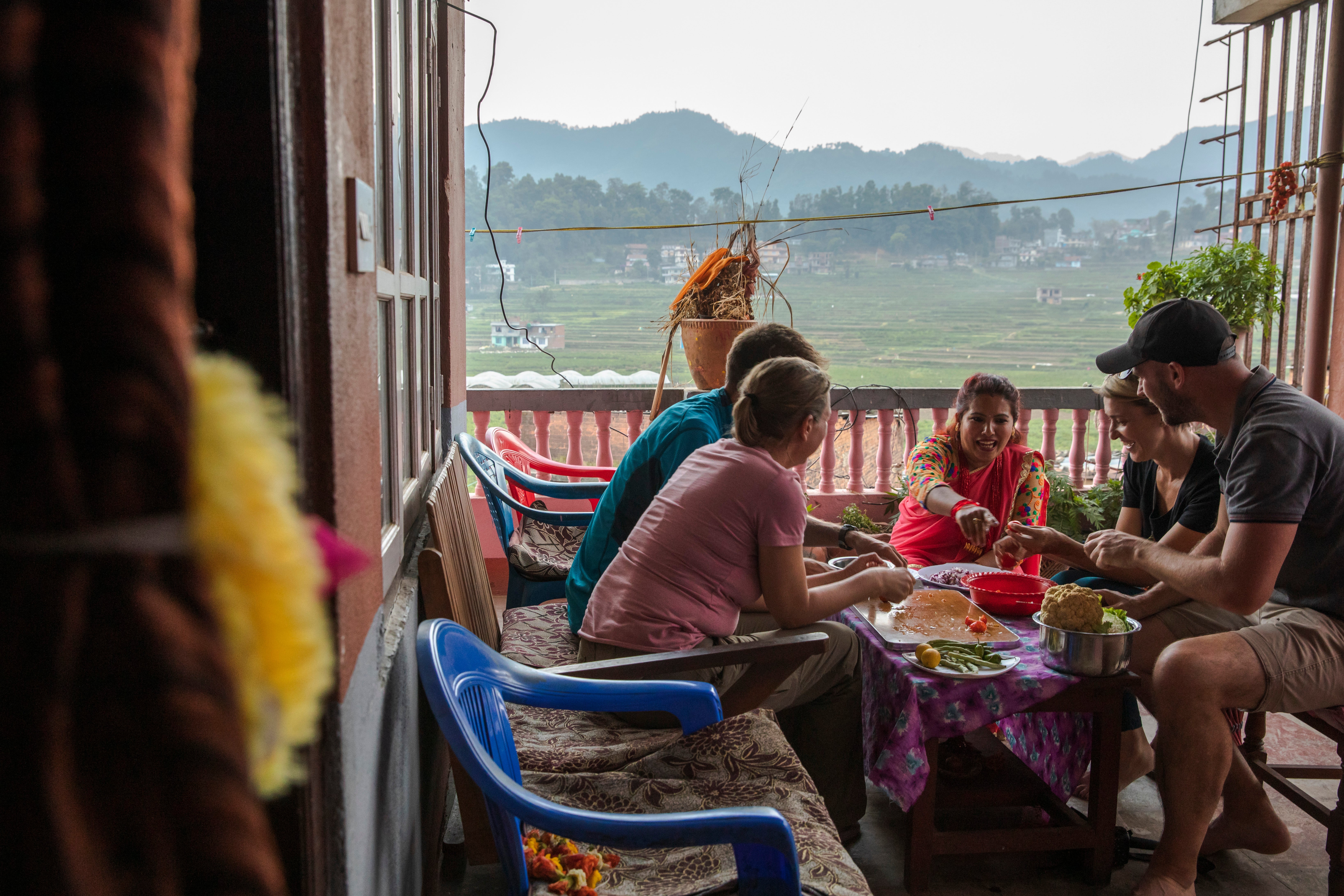Why people-empowering adventures are the latest travel trend
Alongside lowering our environmental impact on a destination, travellers are now actively looking to support and contribute to communities on the ground. Lucy Thackray takes a look at the companies making the introductions


Your support helps us to tell the story
From reproductive rights to climate change to Big Tech, The Independent is on the ground when the story is developing. Whether it's investigating the financials of Elon Musk's pro-Trump PAC or producing our latest documentary, 'The A Word', which shines a light on the American women fighting for reproductive rights, we know how important it is to parse out the facts from the messaging.
At such a critical moment in US history, we need reporters on the ground. Your donation allows us to keep sending journalists to speak to both sides of the story.
The Independent is trusted by Americans across the entire political spectrum. And unlike many other quality news outlets, we choose not to lock Americans out of our reporting and analysis with paywalls. We believe quality journalism should be available to everyone, paid for by those who can afford it.
Your support makes all the difference.In The Independent’s new travel trends column, Trendwatch, we dig into the types of trip, modes of transport and top buzzwords to watch out for.
Thinking about some of the most vivid days I’ve had on my travels, they’re nearly always the ones spent with locals. Knocking back chai at the crack of dawn with a Mumbai student, brimming with enthusiasm and caffeine; stumbling into a ceramics workshop in deepest Bali and buying homewares direct from the makers, the chalky wet clay scent in the air; being kindly instructed by a junior jimador (tequila farmer) in central Mexico as I hacked amateurishly at an agave stump.
On one particularly memorable day, my tour group in Thailand was hosted by several local women in Baan Talay Nok, a village on the country’s west coast that was ravaged by the 2004 tsunami, leaving many of its residents widows. During our tour, we chatted to the women with our Thai guide’s help as they taught us how to cook piquant curried fish and barbecue sweet dough sticks wrapped in banana leaves. They showed us how they make soap from cooking oil and how to de-flesh a coconut on a traditional Thai “toothed” stool like a pro. Despite the language barrier, I remember there being a lot of laughter.
That last one was organised by Intrepid Travel – a pioneer of this kind of “community contact” day, mixed with a bit of social enterprise. It’s a type of travel experience that is increasingly in demand on group and adventure tours.
In G Adventures’s end-of-year customer survey, 68 per cent of respondents said the most important factor when booking a trip is that their money benefits local people. Meanwhile, in a recent Booking.com study, 67 per cent of respondents said they want their travel spending to directly benefit the local community. And in a Skyscanner survey, 39 per cent said they would prioritise spending money with local businesses.
Travellers seem to have shifted from asking “How can I meet locals?” to “How can I meet locals in a way that will directly benefit them?” It means not just engaging with local people, but buying from them, using their transport services, restaurants, accommodation and guiding skills in a sustainable way.

And, as a raft of new multi-stop and adventure tours show, travel companies are taking this demand seriously.
Senior brand and product manager at Intrepid Travel Erica Kritikides calls this type of visit an “impact experience”. From day one, all the company’s trips have been designed to empower local communities: your tour leaders are always local to the destination, and wherever possible they work with locally owned suppliers, particularly those owned by women or minority groups. In Morocco, 90 per cent of its suppliers are local.
It’s not just about supporting a business. It’s about supporting a business where we can see the proceeds going directly back into a community or conservation project
But the recent travel slump offered a golden opportunity to scrutinise this area of the business.
“It gave us an opportunity to really review our trips and ask, ‘are we doing as much as we possibly can in that space?,’” says Kritikides. “At the end of 2020, we undertook a review of our top-selling 100 trips because if we can make any difference on those trips, we can make a really big difference to those places.”
Intrepid worked with its own people in some 25 countries to identify more community-boosting experiences to incorporate into tours, and have added a total of 22 new beneficial, community-based experiences for 2022. “It’s not just about supporting a business,” says Kritikides. “It’s about supporting a business where we can see the proceeds going directly back into a community or conservation project.”
One example is Madi Valley Homestay, a village-run community of homestays and activities in Nepal, where locals earn a sustainable wage by hosting, feeding and guiding Intrepid guests. It’s a win-win: guests love the opportunity to learn local customs and eat home cooking, while the income has funded a fence for the village to protect locals from wild animals wandering in.
In Jaipur, it works with the Pink City Rickshaw scheme, which trains women from low-income households in English, guiding skills and helping them get a driver’s licence. For travellers, it means a fun, local tour on an eco-friendly electric rickshaw, picking up street food and chatting about their guide’s experiences in the city.
Feedback wise, the company finds this sort of experience is often a highlight of their trip. “[Clients] might book a trip for Machu Picchu, but they’ll go home talking about Manos Unidas, a fantastic social enterprise we support in Peru,” says Kritikides.
It’s by no means the only tour company upping their use of homestays, locally owned food outlets and local-led workshops, either. Wild Frontiers has added home-hosted meals with locals to its Sri Lanka itinerary, along with optional stops for drum-making workshops or cooking lessons, while at the high end, luxury hotels such as Aman’s are rolling out excursions to visit small businesses such as pottery studios in rural Turkey, where guests take workshops and buy direct from the maker.
At Responsible Travel, care is put into selecting community-benefiting accommodation and excursions, such as its Himalayas trekking holiday, which pays locals to host travellers, cook meals, and guide groups.
For G Adventures, community support is such a priority that, in 2018, it came up with the “ripple score” – a figure showing customers what percentage of their tour’s spend will stay in the local economy.
Its range of community-focused experiences includes a fascinating knowledge-exchange day in Peru, where members of Cuzco’s Ccaccaccollo community teach travellers how to dye and hand-weave Alpaca wool.
One trip that achieved 100 on the ripple score is its “Hike, Bike and Kayak Thailand” itinerary, which is heavily focused on community-led experiences, such as hill-tribe trekking and kayaking trips with rural communities.
“From the outset, it was about transparency – some of our tours are already at 100 per cent, but for others, we’re not doing so great and we’re holding ourselves accountable, working to improve those numbers,” says Jamie Sweeting, the company’s vice president of responsible travel and social enterprise.
One of his favourite social enterprise partnerships is Solheimar in Iceland, an eco-village home to disabled residents, their families and carers.
We’ve really tried to create an opportunity where people own their own business, they’re hosting you in their village, their own way
Tour groups are taken for lunch stops at its cafe – which the company helped to develop – and can peruse the art and handicrafts in its gallery, buy toiletries made by the residents from Icelandic plants and herbs, or take workshops with the locals.
Crucially, the travel companies leading on these positive community visits want to ensure they don’t drift into something more voyeuristic, or tourists gawping at conditions of poverty. “We’ve really tried to create an opportunity where people own their own business, they’re hosting you in their village, their own way,” says Sweeting. “You’re a guest, and you should act like a guest.”
He gives an example of a Rio de Janeiro tour that takes groups to a locally developed brewery, owned and run by local people in a favela.
You’re not there to ‘fix’ anything or ‘build’ anything - unless it’s by spending your holiday cash in ways that then feed directly back into local infrastructure
It’s not about wandering into the favela taking photos and leaving; it’s about meeting and supporting the locals with direct spend, as well as trying local products.
Sweeting is not a fan of “voluntourism”, a term bandied about over the past decade. In fact, he’s eradicated it from the company’s tours, determined to focus on more sustainable experiences. So what’s the difference?
“Community tourism is by definition community-owned, led and run”, says Sweeting. It’s locals being “invited to share their culture and their history, their way”.
You’re not there to “fix” anything or “build” anything, he explains, unless it’s by spending your holiday cash in a way that feeds directly back into local infrastructure and employment. It’s still very easy to get it wrong, he admits, and this aspect of G’s tours is an ongoing process.
Above all, these community experiences should be enjoyable and inspiring for travellers, Kritikides emphasises – there’s no need to make tours heavy or sombre in order to connect with and support locals. “These experiences need to be great fun – if they’re not, they don’t resonate as strongly. It’s key to them being memorable and powerful.”
Join our commenting forum
Join thought-provoking conversations, follow other Independent readers and see their replies
Comments